Parkin 2 mg Tablet 15's
MRP ₹21.5
(Inclusive of all Taxes)
₹3.2 Cashback (15%)
Selected Pack Size:15
15 ₹19.4
(₹1.29 per unit)
In Stock
10 ₹18.9
(₹1.89 per unit)
In Stock
Provide Delivery Location
Online payment accepted
 Prescription drug
Prescription drugWhats That
Composition :
Manufacturer/Marketer :
Consume Type :
Expires on or after :
Return Policy :
About Parkin 2 mg Tablet
Parkin 2 mg Tablet belongs to a group of medicines called anti-spasmodic agents used as an adjunct to treat Parkinson’s disease and extrapyramidal symptoms (drug-induced movement disorders). Parkinson’s disease is a progressive neurological disorder in which the first signs are problems with movements.
Parkin 2 mg Tablet contains ‘Trihexyphenidyl’ which works by relaxing the muscles and nerve impulses that control muscle functioning. Besides this, Parkin 2 mg Tablet also balances chemical messengers called neurotransmitters in the brain; thereby improving muscle control and reducing stiffness, thereby helps the muscles move naturally.
In some cases, you may experience common side-effects such as nausea, vomiting, dizziness, constipation, weakness, headache, dry mouth, decreased urination, drowsiness, and feeling nervous or restless. Most of these side-effects do not require medical attention and will resolve gradually over time. However, you are advised to talk to your doctor if the side-effects persist or worsen.
Consult your doctor if you are pregnant or breastfeeding. Parkin 2 mg Tablet may cause drowsiness and dizziness, do not drive unless you are alert. Parkin 2 mg Tablet should not be given to children as safety and effectiveness have not been established. Avoid consuming alcohol along with Parkin 2 mg Tablet as it could lead to increased drowsiness and dizziness. Keep your doctor informed about your medicines and health condition to rule out any side-effects.
Uses of Parkin 2 mg Tablet
Directions for Use
Key Benefits
Parkin 2 mg Tablet belongs to a group of medicines called anti-spasmodic agents. Parkin 2 mg Tablet is used to treat the symptoms of Parkinson’s disease and extrapyramidal symptoms (drug-induced movement disorders). Parkin 2 mg Tablet exerts a direct inhibitory effect upon the parasympathetic nervous system. It works by relaxing the muscles and nerve impulses that control muscle functioning. Parkin 2 mg Tablet improves muscle control and reduces stiffness, thereby helps the muscles move naturally. Parkin 2 mg Tablet is used as an adjuvant therapy along with levodopa to treat Parkinson's disease. Additionally, Parkin 2 mg Tablet is used to control drug-induced movement disorders caused by CNS drugs such as dibenzoxazepines, thioxanthenes, phenothiazines, and butyrophenones.
Storage
- Inform your doctor about dry mouth symptoms. They may adjust your medication regimen or prescribe additional medications to manage symptoms.
- Drink plenty of water throughout the day to help keep your mouth moist and alleviate dry mouth symptoms.
- Chew sugar-free gum or candies to increase saliva production and keep your mouth moisturized.
- Use saliva substitutes, such as mouthwashes or sprays, only if your doctor advises them to help moisturize your mouth and alleviate dry mouth symptoms.
- Avoid consuming smoking, alcohol, spicy or acidic foods, and other irritants that may aggravate dry mouth symptoms.
- Schedule regular dental check-ups to keep track of your oral health and handle any dry mouth issues as they arise.
- Tell your doctor immediately if you experience symptoms of Nervousness, such as anxiety, jitteriness, or an increased heart rate, after taking medication or adjusting your medication regimen.
- Your doctor may adjust your medication regimen to alleviate symptoms of Nervousness. This can include switching to a different medication, reducing the dosage, or temporarily stopping the medication. Your doctor may also recommend alternative techniques like relaxation, mindfulness meditation, or journaling. These techniques can help reduce anxiety and Nervousness.
- Practice stress-reducing techniques, such as deep breathing exercises, yoga, or journaling, to help manage Nervousness.
- Engage in regular physical activity, such as walking or jogging, to help reduce anxiety and improve mood.
- Your doctor may advise considering cognitive-behavioural therapy (CBT) or other forms of talk therapy to address underlying anxiety or Nervousness.
- You should maintain regular follow-up appointments with your doctor to monitor nervousness symptoms, adjust treatment plans as needed, and discuss any concerns or questions.
- Inform your doctor about dizziness symptoms. They may adjust your medication regimen or prescribe additional medications to manage symptoms.
- Follow your doctor's instructions for taking medication, and take it at the same time every day to minimize dizziness.
- When standing up, do so slowly and carefully to avoid sudden dizziness.
- Avoid making sudden movements, such as turning or bending quickly, which can exacerbate dizziness.
- Drink plenty of water throughout the day to stay hydrated and help alleviate dizziness symptoms.
- If you're feeling dizzy, sit or lie down and rest until the dizziness passes.
- Track when dizziness occurs and any factors that may trigger it, and share this information with your doctor to help manage symptoms.
- Skin rash caused by allergies is due to irritants or allergens. Therefore, avoid contact with such irritants.
- Consult your doctor for proper medication and apply an anti-itch medication. Follow the schedule and use the medication whenever needed.
- Protect your skin from extreme heat and try to apply wet compresses.
- Soak in the cool bath, which gives a soothing impact to the affected area.
- Inform your doctor about the nausea and discuss possible alternatives to the medication or adjustments to the dosage.
- Divide your daily food intake into smaller, more frequent meals to reduce nausea.
- Opt for bland, easily digestible foods like crackers, toast, plain rice, bananas, and applesauce.
- Avoid certain foods that can trigger nausea, such as fatty, greasy, spicy, and smelly foods.
- Drink plenty of fluids, such as water, clear broth, or electrolyte-rich beverages like coconut water or sports drinks.
- Use ginger (tea, ale, or candies) to help relieve nausea.
- Get adequate rest and also avoid strenuous activities that can worsen nausea.
- Talk to your doctor about taking anti-nausea medication if your nausea is severe.
- Record when your nausea occurs, what triggers it, and what provides relief to help you identify patterns and manage your symptoms more effectively.
Drug Warnings
Do not take Parkin 2 mg Tablet if you are allergic to any of its contents or if you have narrow-angle glaucoma. Do not discontinue Parkin 2 mg Tablet on your own. Inform your doctor if you have glaucoma, prostate problems, urination problems, stomach ulcers, acidity, myasthenia gravis (muscle problems), tardive dyskinesia (involuntary facial movements), alcoholism, high blood pressure, heart, liver or kidney problems. Talk to your doctor immediately if you experience hallucinations. Consult your doctor if you are pregnant or breastfeeding. Parkin 2 mg Tablet may cause drowsiness and dizziness, do not drive unless you are alert. Parkin 2 mg Tablet should not be given to children as safety and effectiveness have not been established. Avoid consuming alcohol along with Parkin 2 mg Tablet as it could lead to increased drowsiness and dizziness.
Drug-Drug Interactions
Drug-Drug Interactions
Login/Sign Up
Co-administration of Parkin 2 mg Tablet with potassium chloride can increase the risk of stomach ulcers, bleeding, and gastrointestinal injury.
How to manage the interaction:
Taking Parkin 2 mg Tablet with potassium chloride is not recommended as it can possibly result in an interaction, it can be taken if prescribed by a doctor. However, if you experience abdominal pain, bloating, sudden dizziness or lightheadedness, nausea, vomiting (especially with blood), loss of appetite, black stools contact a doctor immediately. Do not discontinue any medications without consulting to a doctor.
Co-administration of Parkin 2 mg Tablet with potassium citrate may increase the risk of stomach ulcers, bleeding, and gastrointestinal injury.
How to manage the interaction:
Taking Parkin 2 mg Tablet with potassium citrate is not recommended as it can possibly result in an interaction, it can be taken if prescribed by a doctor. However, if you experience abdominal pain, bloating, sudden dizziness or lightheadedness, nausea, vomiting (especially with blood), loss of appetite, or black stools contact a doctor immediately. Do not discontinue any medications without consulting a doctor.
Taking Parkin 2 mg Tablet with Ketamine can increase the risk of side effects.
How to manage the interaction:
Although there is a interaction between Parkin 2 mg Tablet and ketamine, but it can be taken together if prescribed by your doctor. However, if you experience drowsiness, confusion, difficulty concentrating, and impairment in thinking contact your doctor right away. Do not stop using any medications without talking to your doctor.
Taking Parkin 2 mg Tablet with esketamine can increase the risk of other side effects.
How to manage the interaction:
Although there is a interaction between Parkin 2 mg Tablet and esketamine, but can be taken together if prescribed by your doctor. However, if you experience drowsiness, confusion, difficulty concentrating, and impairment in thinking contact your doctor right away. Do not stop using any medications without talking to your doctor.
Taking Parkin 2 mg Tablet with topiramate can increase the risk of increase body temperature and reduced sweating.
How to manage the interaction:
Co-administration of Parkin 2 mg Tablet with Topiramate can result in an interaction, but it can be taken if your doctor has advised it. However, if you experience dizziness or lightheaded, increase body temperature contact your doctor right away. Do not discontinue any medications without first consulting your doctor.
Coadministration of Parkin 2 mg Tablet with Zonisamide can increase the risk or severity of Zonisamide side effects like increased body temperature and decreased sweating especially in warm weather.
How to manage the interaction:
Taking Parkin 2 mg Tablet with Zonisamide together is not recommended as it can result in an interaction, but it can be taken if your doctor has advised it. However, if you experience increased heart rate, fever, or excessive sweating, contact a doctor immediately. Make sure to hydrate yourself during warm weather or after exercise. Do not discontinue any medications without consulting a doctor.
Coadministration of Allopurinol with Parkin 2 mg Tablet may increase side effects such as heat intolerance, dry mouth, confusion, constipation, difficulty urinating, and blurred vision especially in the elderly or those with a debilitating (physically weak) condition.
How to manage the interaction:
If you are supposed to take Allopurinol and Parkin 2 mg Tablet together, your doctor may adjust the dose or monitor you more frequently to safely use both medications.
Drug-Food Interactions
Drug-Food Interactions
Login/Sign Up
Diet & Lifestyle Advise
- Maintain a healthy diet and exercise regularly.
- Include a diet rich in iron, folate and magnesium.
- Regularly attend therapy sessions.
- Perform meditation and yoga.
- Follow a regular sleep pattern.
- Avoid smoking and alcohol consumption.
- Learn about your condition, understand the risk factors and follow the doctor’s treatment plan.
Side Effects of Parkin 2 mg Tablet
- Nausea
- Vomiting
- Dizziness
- Constipation
- Weakness
- Headache
- Dry mouth
- Decreased urination
- Drowsiness
- Feeling nervous or restless
Habit Forming
Therapeutic Class
All Substitutes & Brand Comparisons
RX
Out of StockHexinal 2mg Tablet
Torrent Pharmaceuticals Ltd
₹2.93
(₹0.26 per unit)
79% CHEAPERRX
Out of StockBenzol-2 Tablet 10's
Arbour Biotec Pvt Ltd
₹13
(₹1.17 per unit)
9% CHEAPERRX
Out of StockHexyfen 2mg Tablet
Daaso Pharmaceuticals Pvt Ltd
₹13
(₹1.17 per unit)
9% CHEAPER
Author Details
We provide you with authentic, trustworthy and relevant information
Drug-Diseases Interactions
Drug-Diseases Interactions
Login/Sign Up
FAQs
Parkin 2 mg Tablet works by relaxing the muscles and nerve impulses that control muscle functioning. It improves muscle control and reduces the stiffness, thereby helps the muscles move naturally.
Dry mouth could be a side-effect of Parkin 2 mg Tablet . Limiting caffeine intake, avoiding smoking and mouthwashes containing alcohol, drinking water regularly, and chewing sugar-free gum/candy might help in stimulating saliva and thereby prevents drying of the mouth.
Parkin 2 mg Tablet should be used with caution during hot weather as it may increase the chance of having a heat stroke. Inform your doctor if you have heat intolerance or fever.
Antidepressants should be avoided while taking Parkin 2 mg Tablet as it might increase sedative effects. Consult your doctor before taking Parkin 2 mg Tablet if you are using depressants.
Hallucination is a medical condition in which the person may feel, hear or believe things that are not true, see things that are not there, or feel unusually suspicious or confused. Parkin 2 mg Tablet may cause hallucinations in some cases if taken for a prolonged time. So, if you experience hallucinations while taking Parkin 2 mg Tablet , please talk to your doctor immediately.
Constipation may occur as a side-effect of Parkin 2 mg Tablet . Try eating foods that encourage a bowel movement. Consult your doctor if you experience excessive constipation.
Consult your doctor before taking Parkin 2 mg Tablet if you have glaucoma. Parkin 2 mg Tablet is contraindicated in patients with narrow-angle glaucoma. Parkin 2 mg Tablet may cause blindness on long-term use in case of patients with narrow-angle glaucoma.
Drug-Drug Interactions Checker List
- ARIPIPRAZOLE
- LURASIDONE
- OLANZAPINE
- RISPERIDONE
- QUETIAPINE
- TRIFLUOPERAZINE
- RASAGILINE
- DIPHENHYDRAMINE
- BENZTROPINE MESYLATE
- CLONAZEPAM
- LAMOTRIGINE
- PREGABALIN
- ESCITALOPRAM
- DULOXETINE
- ALPRAZOLAM
- ACETAMINOPHEN
Special Advise
- Take Parkin 2 mg Tablet at least 2 hours after taking ketoconazole and antidiarrheal medicines as it may prevent the full absorption of trihexyphenidyl. Besides this, Parkin 2 mg Tablet may prevent the complete absorption of antifungal agents like ketoconazole when these medicines are taken together.
- Parkin 2 mg Tablet can cause decreased sweating, resulting in a rise in body temperature (hyperthermia). This profound side effect is more significant in hot weather, so it is advisable to drink plenty of water, especially in summer. However, kidney patients should consult a doctor before consuming any fluid.
- Take special care with your dental hygiene while using Parkin 2 mg Tablet (like brushing, and flossing) and have regular dental check-ups.
Disease/Condition Glossary
Parkinson’s disease: It is a progressive neurological disorder in which the first signs are problems with movements. Dopamine is a naturally-occurring neurotransmitter in the brain which is reduced or absent in people with Parkinson’s disease. Due to this, problems arise with smooth and coordinated movements. Symptoms include decreased ability to smell, stooped posture, changes in voice, constipation, small/ cramped handwriting, tremor, slow movements, stiffness of arms, legs, trunk, and balance problems.

Have a query?
Alcohol
Safe if prescribed
Avoid consumption of alcohol while taking Parkin 2 mg Tablet as it may cause increased dizziness and drowsiness.
Pregnancy
Consult your doctor
Parkin 2 mg Tablet belongs to pregnancy category C. Please consult your doctor if you are pregnant or planning for pregnancy. Your doctor will prescribe only if the benefits outweigh the risks.
Breast Feeding
Consult your doctor
It is unknown whether Parkin 2 mg Tablet passes into breastmilk. Consult your doctor if you are breastfeeding.
Driving
Safe if prescribed
Parkin 2 mg Tablet may cause dizziness, drowsiness and blurred vision. Avoid driving and handling machinery if you experience these symptoms.
Liver
Consult your doctor
Dose adjustment may be needed in patients with liver impairment. Please consult your doctor if you have a liver impairment or any concerns regarding this.
Kidney
Consult your doctor
Dose adjustment may be needed in patients with kidney impairment. Please consult your doctor if you have kidney impairment or any concerns regarding this.
Children
Safe if prescribed
Parkin 2 mg Tablet is not recommended for use in children, as safety and effectiveness have not been established.
Recommended for a 30-day course: 4 Strips







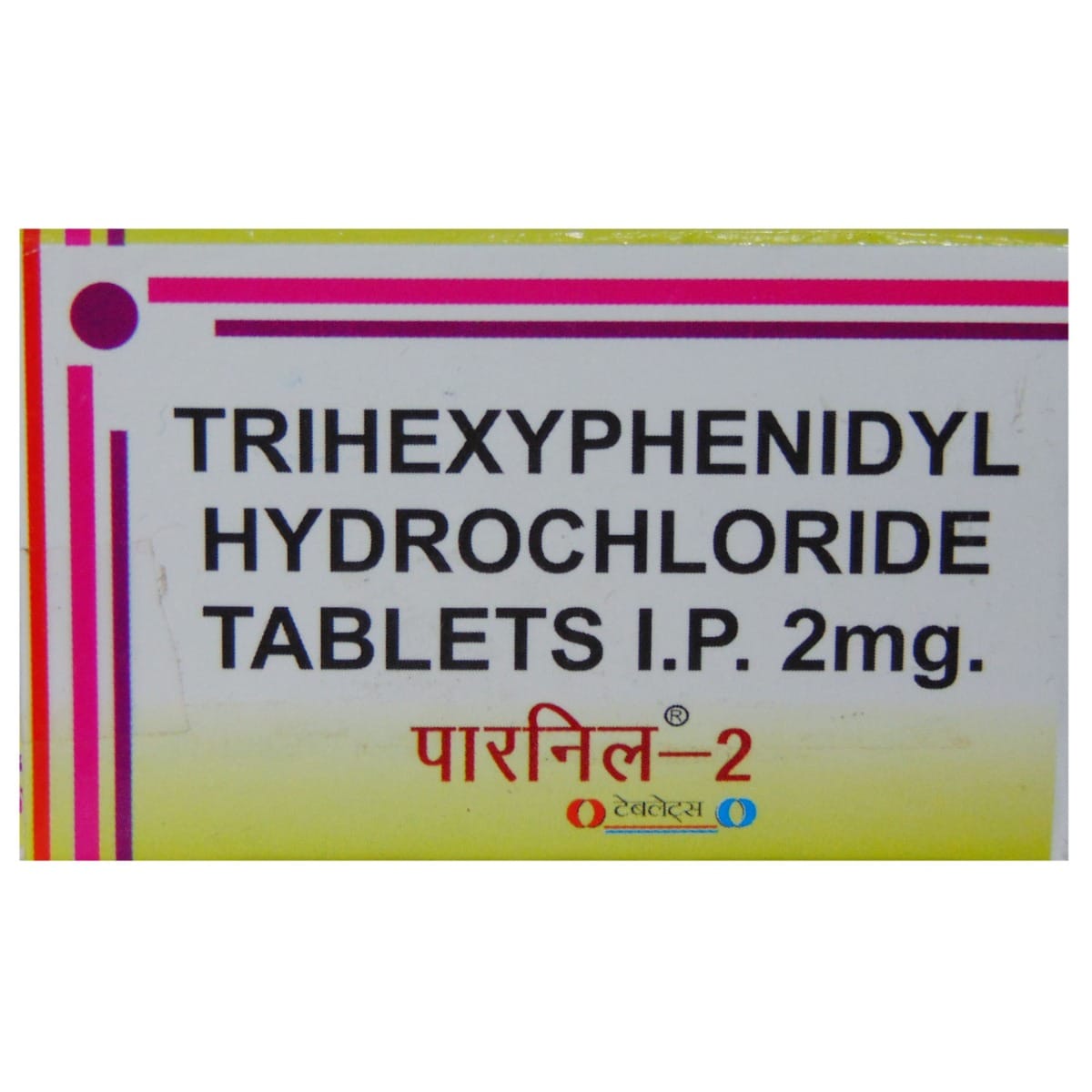
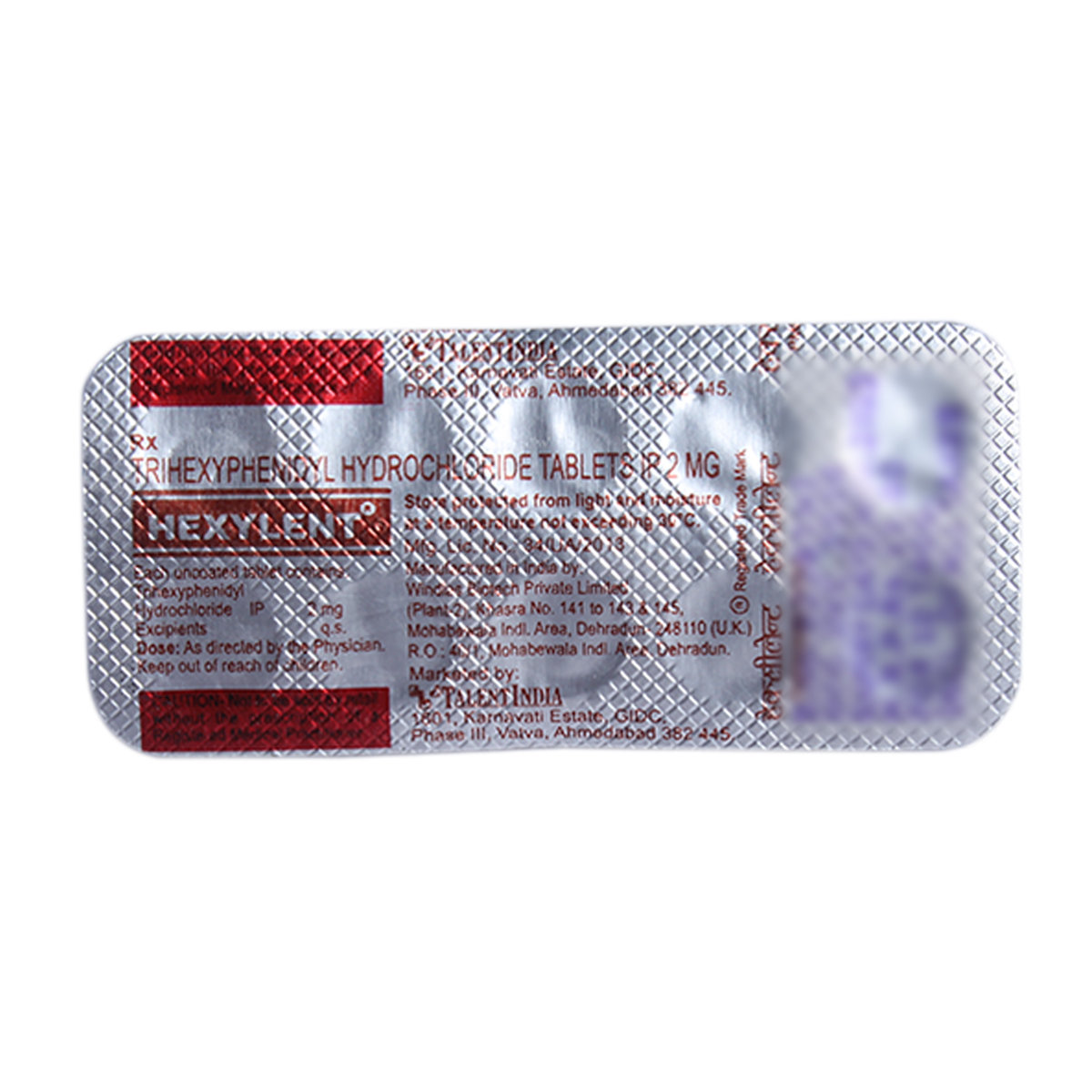
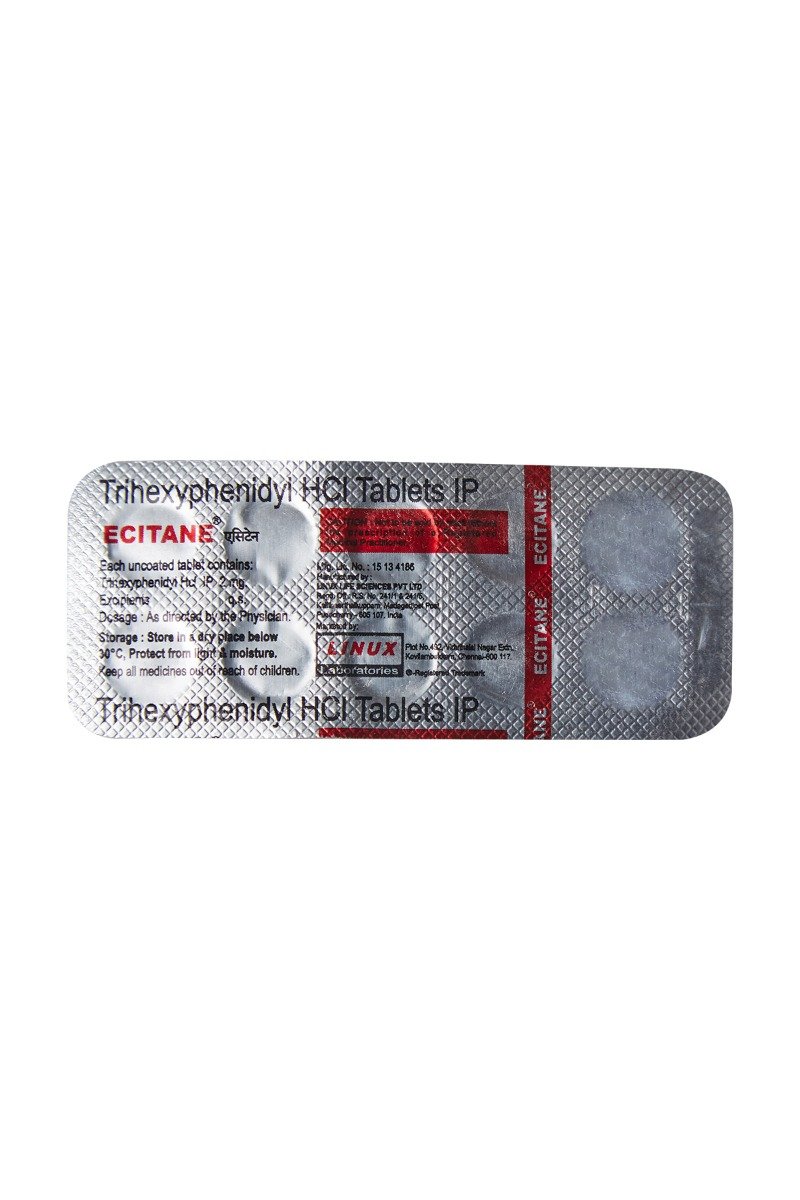
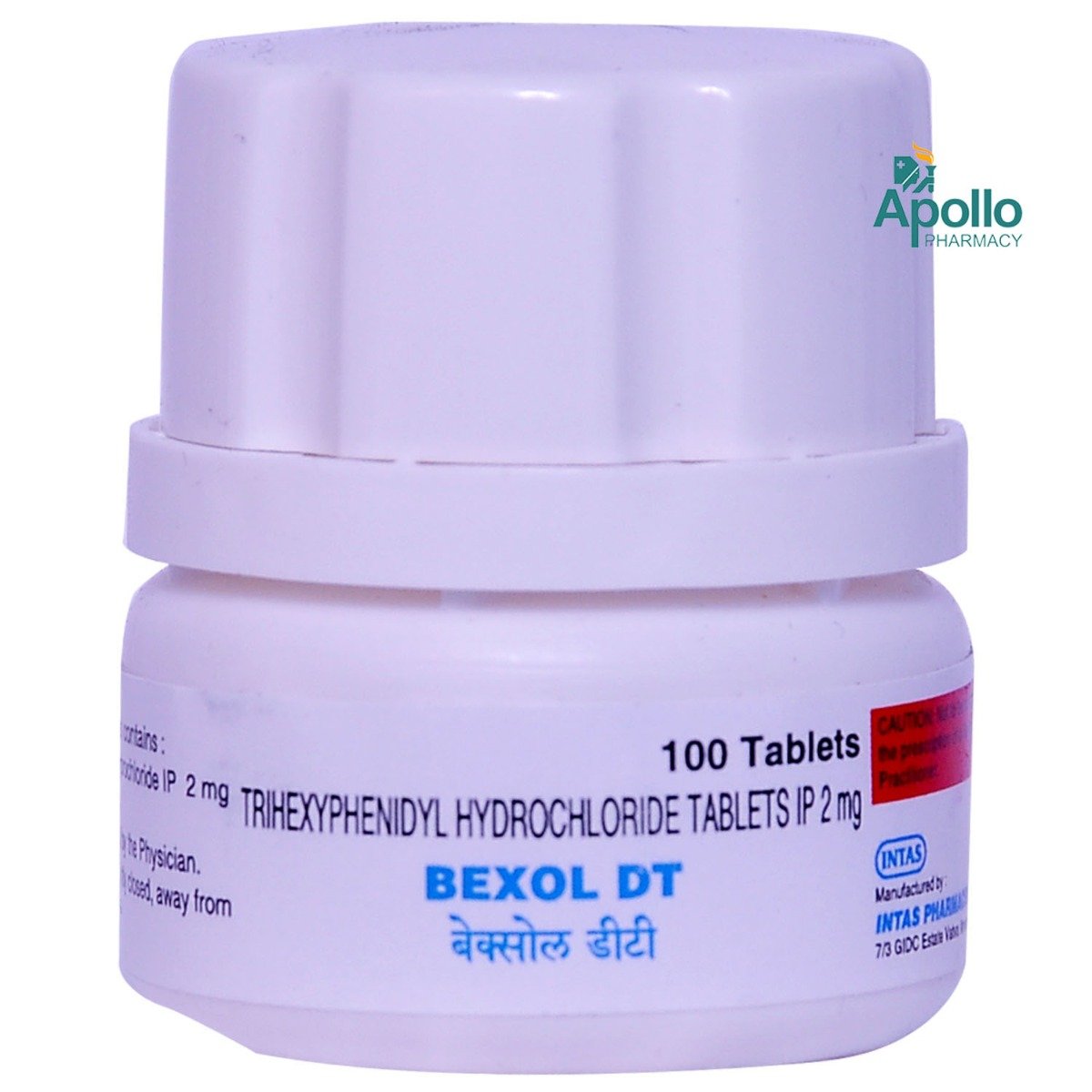
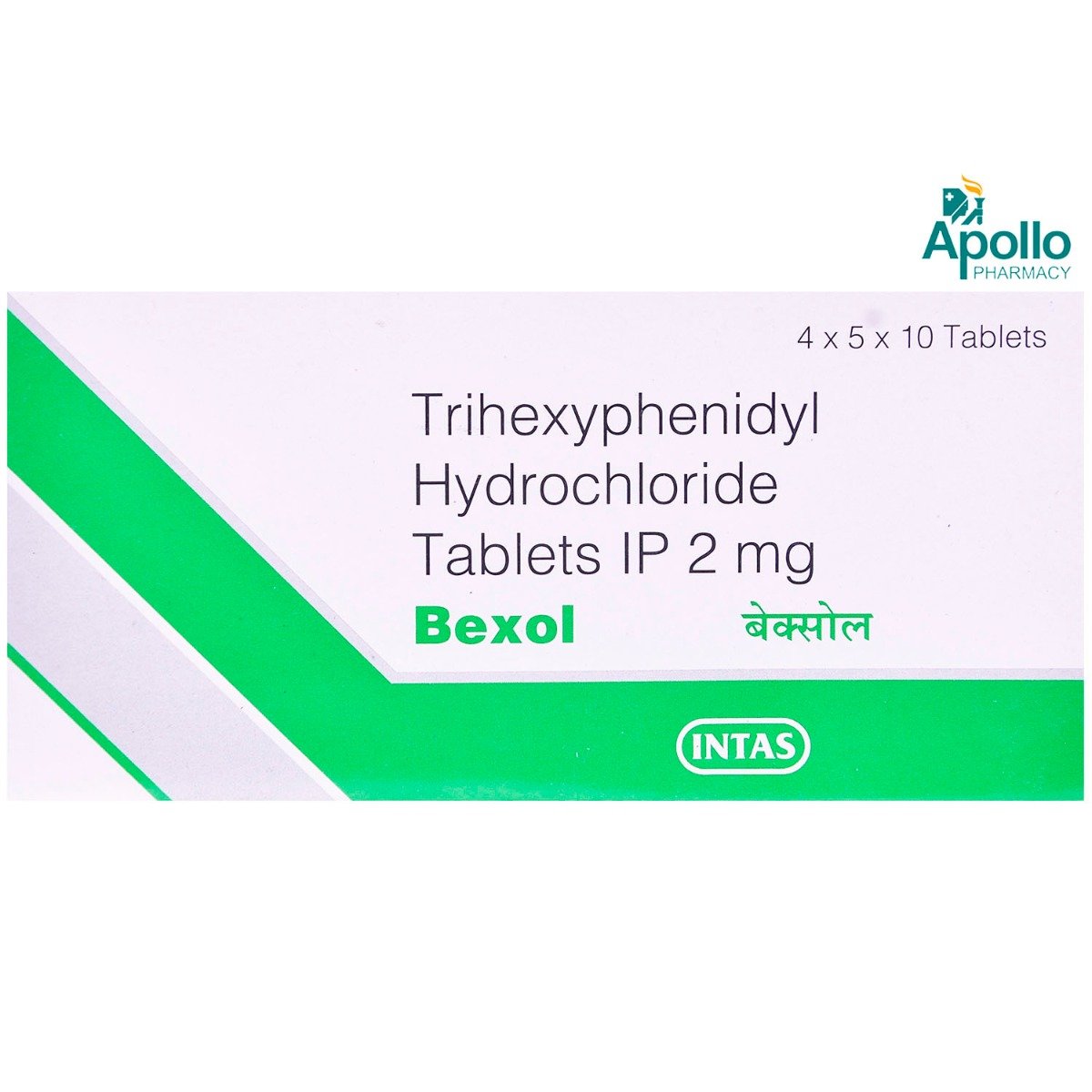
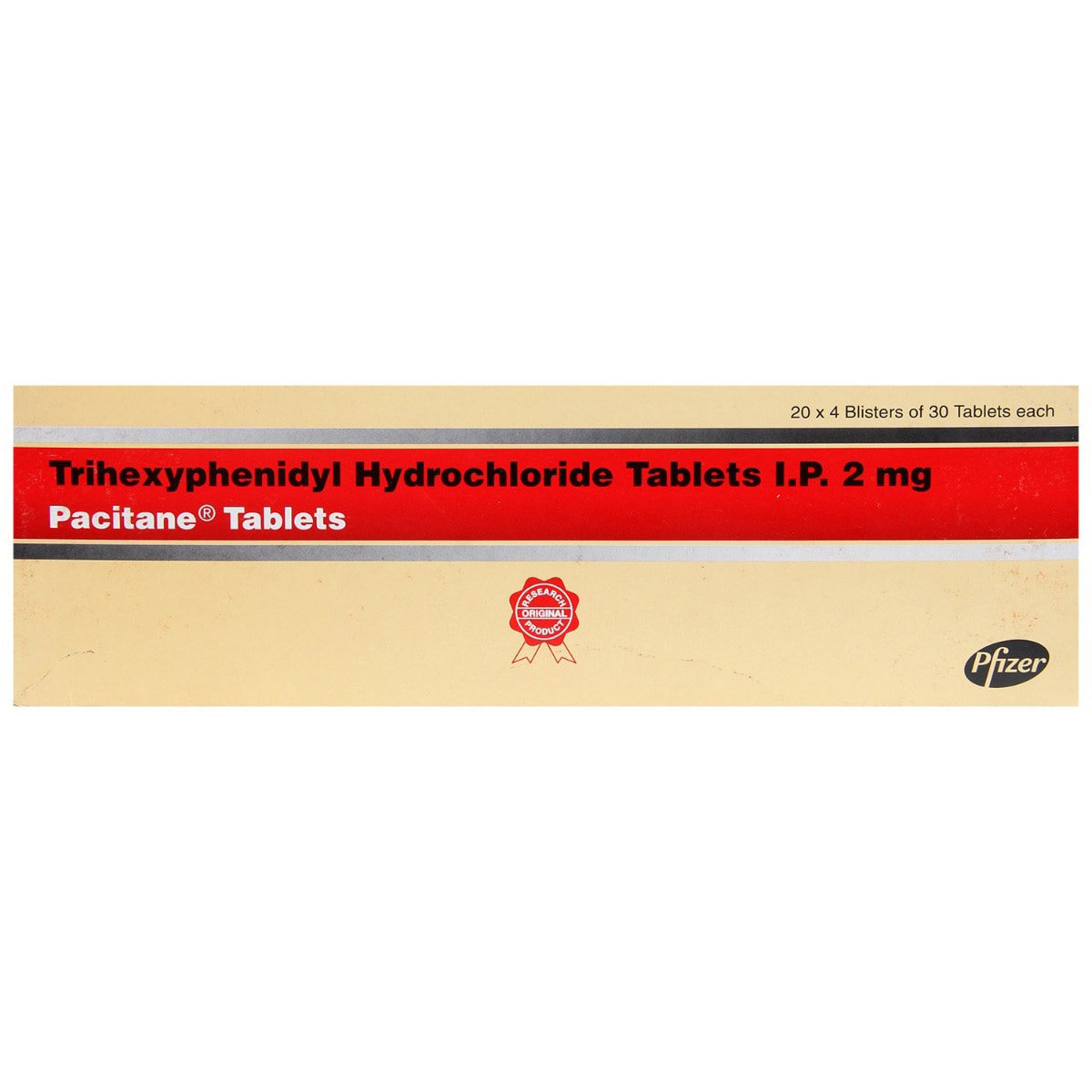

_0.jpg?tr=q-85)

